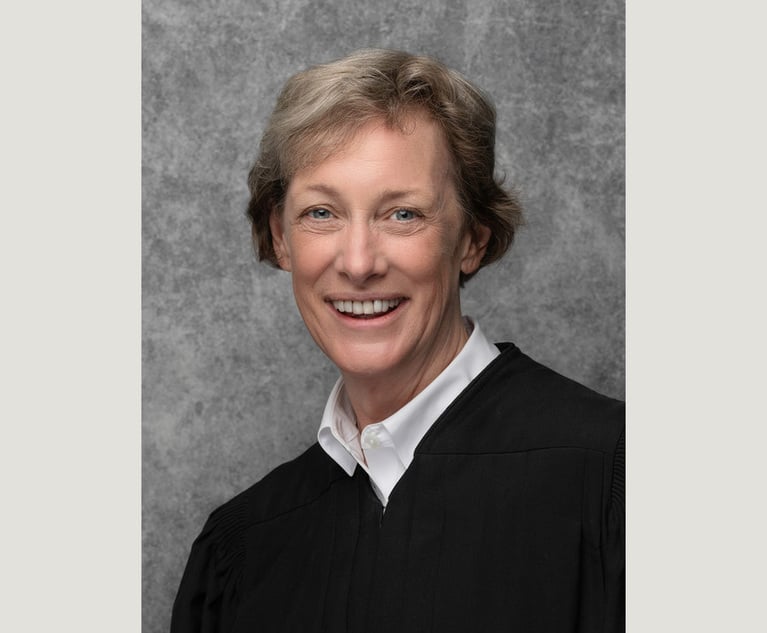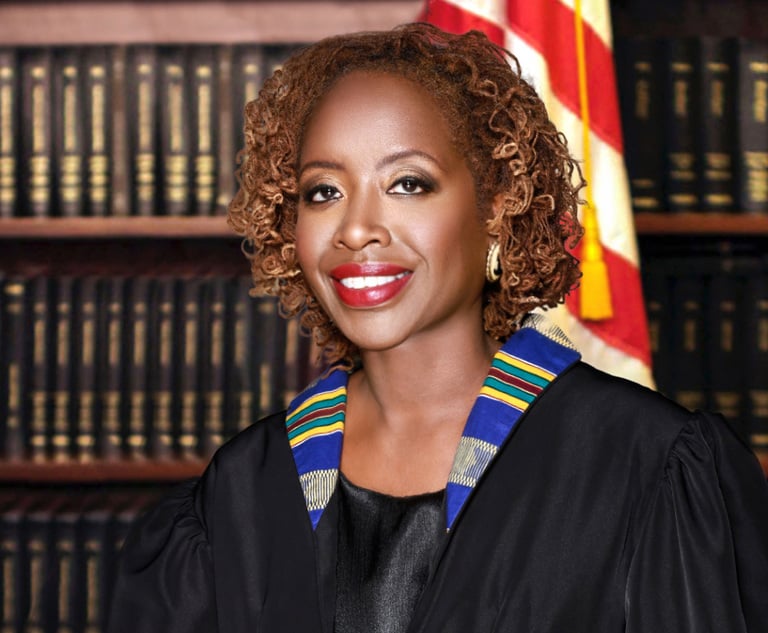 The New York Court of Appeals on April 5, 2022 in Albany, New York. Photo: Ryland West/ALM
The New York Court of Appeals on April 5, 2022 in Albany, New York. Photo: Ryland West/ALM The Governor—Not the State Senate—Appoints New York's Chief Judge
"I believe that those Senators who oppose Justice LaSalle and have attacked some members of the Court of Appeals as being "too conservative" have either been misled, do not apprehend the jurisdiction of the New York Court of Appeals, or don't ascribe to the fundamental foundation of our separation of powers that limits the arbitrary excesses of government and compels the need for an independent judiciary."
January 13, 2023 at 09:15 AM
10 minute read
Our New York State Senate will soon be called upon to "advise and consent" with respect to Gov. Kathy Kochul's nomination of Justice Hector LaSalle to be New York's next Chief Judge. Given the expressed disapproval of at least 14 of those Democratic state senators, and based on counterfacuals which have been concocted by those who argue that Judge LaSalle is "too conservative," one wonders if Justice LaSalle will be treated the same way the Republicans in the U.S. Senate treated Judge Merrick Garland by giving him no hearing at all. Or perhaps our New York State Senate will give Justice LaSalle the same sort of confirmation hearing given to Judge Ketanji Brown Jackson where interrogators seemed unconcerned about her fitness and abilities and more concerned with pleasing their "base" by misrepresenting her judicial record. Judge Jackson had served as a public defender which led to her being characterized as "too progressive" and a coddler of child sex abusers. Judge LaSalle had served as an assistant district attorney which has led to his being characterized as "too conservative" and "anti-union."
When it came to the selection of judges to sit on our nation's highest court, The United States Supreme Court, our constitutional forebears felt the choice should not be made by a "legislative body." They felt that judicial appointments should be made by one person: The Chief Executive. Our founders did not trust any legislative body or "assembly of men" to make such an appointment, believing that such an assembly would, as Alexander Hamilton put it: "display all the private and party likings and dislikes, partialities and antipathies, attachments and animosities, which are felt by those who compose the assembly." However, it was agreed that the Executive's appointment should be subjected to the "advise and consent" of the Senate.
This content has been archived. It is available through our partners, LexisNexis® and Bloomberg Law.
To view this content, please continue to their sites.
Not a Lexis Subscriber?
Subscribe Now
Not a Bloomberg Law Subscriber?
Subscribe Now
NOT FOR REPRINT
© 2025 ALM Global, LLC, All Rights Reserved. Request academic re-use from www.copyright.com. All other uses, submit a request to [email protected]. For more information visit Asset & Logo Licensing.
You Might Like
View All

Honored by NYSBA, 2nd Circuit Chief Judge Livingston's Remarks Stress Judicial Safety
3 minute read
Justice in the 21st Century, New Visions, New Realities—A New Dawn of Justice
4 minute readTrending Stories
Who Got The Work
J. Brugh Lower of Gibbons has entered an appearance for industrial equipment supplier Devco Corporation in a pending trademark infringement lawsuit. The suit, accusing the defendant of selling knock-off Graco products, was filed Dec. 18 in New Jersey District Court by Rivkin Radler on behalf of Graco Inc. and Graco Minnesota. The case, assigned to U.S. District Judge Zahid N. Quraishi, is 3:24-cv-11294, Graco Inc. et al v. Devco Corporation.
Who Got The Work
Rebecca Maller-Stein and Kent A. Yalowitz of Arnold & Porter Kaye Scholer have entered their appearances for Hanaco Venture Capital and its executives, Lior Prosor and David Frankel, in a pending securities lawsuit. The action, filed on Dec. 24 in New York Southern District Court by Zell, Aron & Co. on behalf of Goldeneye Advisors, accuses the defendants of negligently and fraudulently managing the plaintiff's $1 million investment. The case, assigned to U.S. District Judge Vernon S. Broderick, is 1:24-cv-09918, Goldeneye Advisors, LLC v. Hanaco Venture Capital, Ltd. et al.
Who Got The Work
Attorneys from A&O Shearman has stepped in as defense counsel for Toronto-Dominion Bank and other defendants in a pending securities class action. The suit, filed Dec. 11 in New York Southern District Court by Bleichmar Fonti & Auld, accuses the defendants of concealing the bank's 'pervasive' deficiencies in regards to its compliance with the Bank Secrecy Act and the quality of its anti-money laundering controls. The case, assigned to U.S. District Judge Arun Subramanian, is 1:24-cv-09445, Gonzalez v. The Toronto-Dominion Bank et al.
Who Got The Work
Crown Castle International, a Pennsylvania company providing shared communications infrastructure, has turned to Luke D. Wolf of Gordon Rees Scully Mansukhani to fend off a pending breach-of-contract lawsuit. The court action, filed Nov. 25 in Michigan Eastern District Court by Hooper Hathaway PC on behalf of The Town Residences LLC, accuses Crown Castle of failing to transfer approximately $30,000 in utility payments from T-Mobile in breach of a roof-top lease and assignment agreement. The case, assigned to U.S. District Judge Susan K. Declercq, is 2:24-cv-13131, The Town Residences LLC v. T-Mobile US, Inc. et al.
Who Got The Work
Wilfred P. Coronato and Daniel M. Schwartz of McCarter & English have stepped in as defense counsel to Electrolux Home Products Inc. in a pending product liability lawsuit. The court action, filed Nov. 26 in New York Eastern District Court by Poulos Lopiccolo PC and Nagel Rice LLP on behalf of David Stern, alleges that the defendant's refrigerators’ drawers and shelving repeatedly break and fall apart within months after purchase. The case, assigned to U.S. District Judge Joan M. Azrack, is 2:24-cv-08204, Stern v. Electrolux Home Products, Inc.
Featured Firms
Law Offices of Gary Martin Hays & Associates, P.C.
(470) 294-1674
Law Offices of Mark E. Salomone
(857) 444-6468
Smith & Hassler
(713) 739-1250







